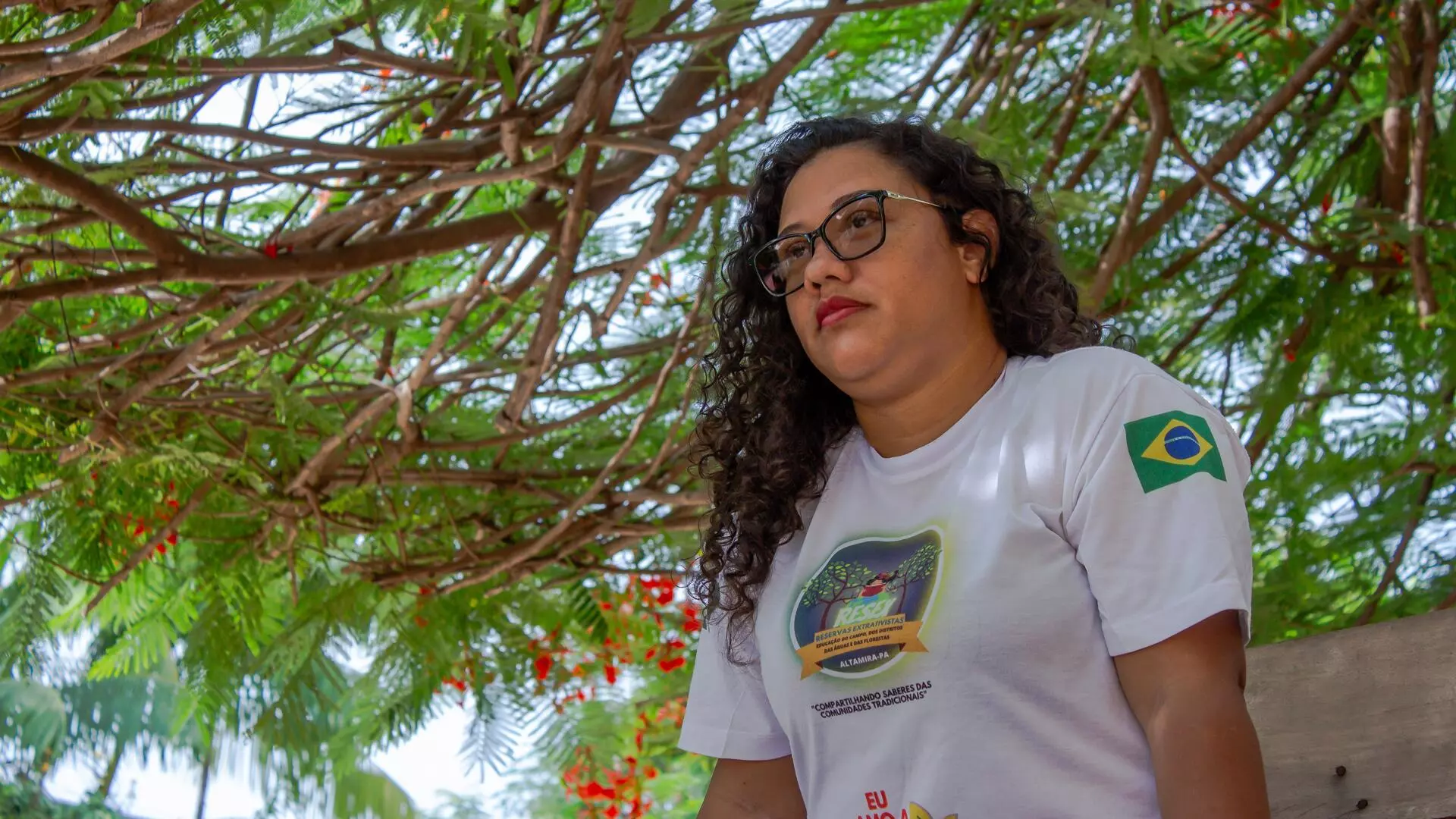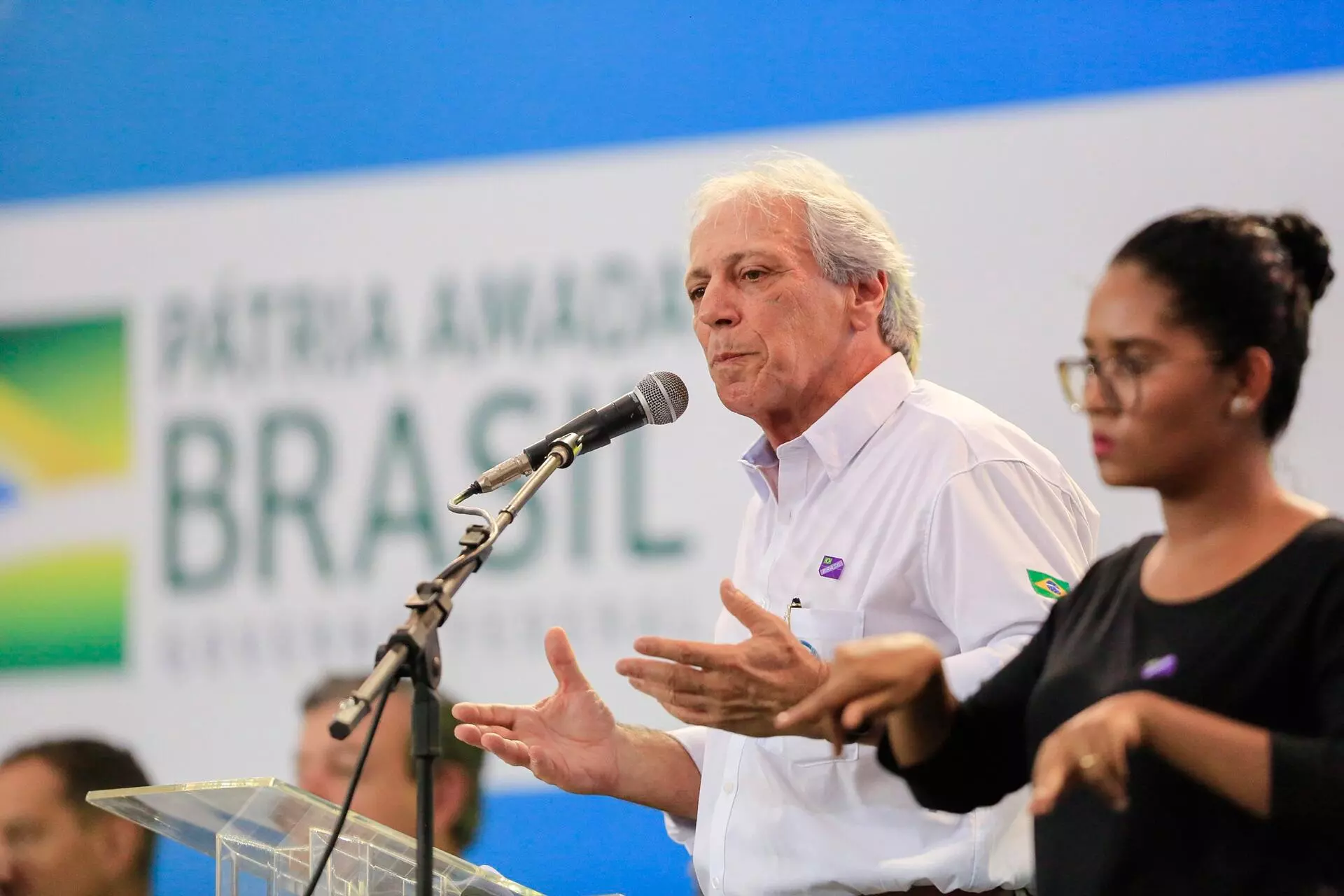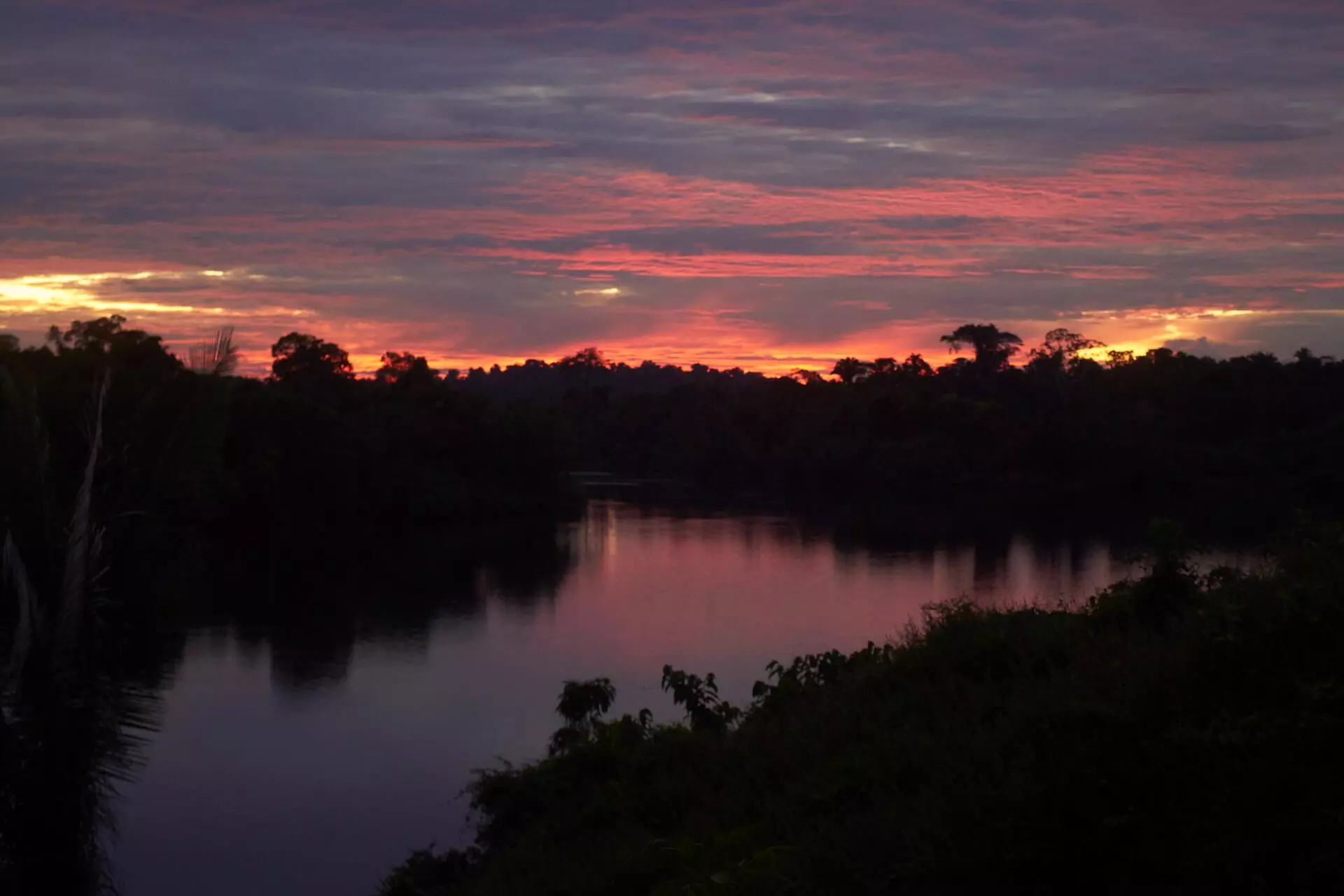Concessionaire Norte Energia has asked Brazil’s environmental regulator, Ibama, to renew its license to operate the Belo Monte Hydroelectric Plant, which opened in 2016, under the presidency of Dilma Rousseff. Yet the company continues to refuse to comply with one of its operating requirements: compensation for the fishers who live in the three Extractive Reserves of the Terra do Meio region, in the state of Pará, for indirect impacts resulting from the damming of the Xingu River.
The Rio Iriri, Riozinho do Anfrísio, and Rio Xingu Extractive Reserves are home to approximately 1,500 people. They are part of a group of conservation units, the largest of which is the Terra do Meio Ecological Station. The Extractive Reserves are territories where traditional populations can maintain their ways of life and cultural traditions. In Terra do Meio, located in the Amazon Rainforest, in the state of Pará, these populations are known as Ribeirinhos, a traditional people of the forest, and fishing is the basis of their diet and their main source of income.
Or it was, until construction of the Belo Monte Dam, which began in 2011, held back 150 kilometers of the Xingu River. “There are days when my husband goes out to fish and returns with nothing. Each year is worse than the last,” teacher Maiam Quelli Portugal tells SUMAÚMA. Maiam is the director of the schools in the Rio Iriri Extractive Reserve and has lived in the region since 2008. “I know the before and the after of Belo Monte. Everything changed. The river had never run so dry, and I’m not just talking about now [the drought of 2023]. When the plant began operating, the Xingu dried up like never before. And the floods are worse than ever. With all of this, the fish disappear.”

Teacher Maiam Quelli tells how when the hydroelectric plant started operations, the Xingu River dried up like never before. Photo: Soll/SUMAÚMA
The Terra do Meio Extractive Reserves lie in the Belo Monte Dam’s Indirect Area of Influence, according to the Environmental Impact Study authorizing the hydroelectric plant’s construction. In 2015, with the project affecting their traditional way of life, residents organized and brought their case to the Chico Mendes Institute for Biodiversity Conservation (ICMBio), the agency tasked with managing federal extractive reserves.
ICMBio sent technical staff to the region. They did a study that found fish numbers had fallen in the Iriri, Xingu, and Anfrísio Rivers, while also noting that fish was a basic component of incomes – it accounted for up to 70% of household earnings – and Ribeirinho diets – it is found in 57% of meals in these communities.
This led the institute to recognize, in 2015, that the Belo Monte Dam had caused “negative impacts on communities’ way of life,” which included “decreased income and a loss of food sovereignty, because of a reduction in fish.” The document produced by the technical team also mentioned “increased conflicts in the territory” because of the dam. The region’s population grew, prices rose. And groups that were included in Belo Monte compensations, giving them access to better fishing equipment, began to compete with the Ribeirinhos for fish – with an advantage.
Based on all of this, ICMBio asked that there be support to sustainably manage fish populations and other river animals, while also diversifying activities that could bring new sources of revenue to communities in the Terra do Meio region. In November 2015, the Brazilian Institute of Environment and Renewable Natural Resources (Ibama), which is responsible for licensing the installation and operation of undertakings like hydroelectric dams, approved the request. Compensating the damages caused to the Ribeirinhos in the Terra do Meio region became a requirement for the Belo Monte complex to operate.
Yet what seemed to be a solution was instead the start of enduring anguish for the peoples of Terra do Meio. Norte Energia – a consortium of companies whose shareholders include the recently privatized Eletrobras, the Vale mining company, the workers’ retirement funds of both the Caixa bank and Petrobras, and NeoEnergia, a private power company – refuses to comply with this condition. Because of this, Ibama fined the consortium R$ 101,000 (around US$ 20,000) in 2017. The company appealed and filed a challenge to the condition, which was denied by the environmental regulator. The energy consortium didn’t back down: in 2020, it submitted a technical report that tried to deny the impacts on the Ribeirinhos of Terra do Meio. Even though the ICMBio was being run at the time by the extreme-right Jair Bolsonaro administration, it found the arguments to be “frivolous in nature,” or rather, a tactic used by Norte Energia to defer resolution of a problem it had caused.
Successive appeals and studies by the company ended up stalling compliance with the condition. In 2021, the Public Prosecutor’s Office and the Federal Public Defender’s Office questioned this delay. Finally, in November 2022, the ICMBio reorganized a Working Group whose members included the agency’s technical staff, resident associations within the Extractive Reserves, and university researchers. It was up to this group to review a 2018 proposal for Norte Energia to repair damages caused to the Ribeirinhos.
The proposal was drawn up through meetings held with residents in the communities of the Terra do Meio region and is split into six parts. It first sets an indemnity of R$ 30,000 for each of the 330 families, making one-time payments, “due to the lack of implementation of measures to mitigate (reduce) impacts” – after all, eight years have gone by since the Belo Monte dammed the Xingu River and it was granted a license to operate as long as it compensated the Ribeirinhos for impacts. The proposal also stipulates that fish be monitored and that solar power generators and refrigerators be installed “to guarantee that fish continue to be part of the traditional diet and to generate income,” while also investing in other production chains, such as selling products collected in the forest and raising small animals to offset the shortage of fish. It also determines that technical and administrative workers be hired to advise communities.
Water quality was given special attention in the proposal. “Considering that Belo Monte has changed the dynamic of the rivers as well as land use and occupation in the region, while also changing the standard of consumption and the makeup of the aquatic species consumed, and that it has caused a significant rise in the population, [there are] reports of increased incidence of illnesses and health problems related to the rivers’ water. Monitoring of parameters that could find contamination is proposed, along with installation of strategically-located wells,” says the document prepared by the Working Group.
‘It’s disrespectful’
On August 22, 2023, nearly eight years after Ibama imposed this condition, the Ribeirinhos of Terra do Meio went to Brasília for a meeting where the Working Group would present the revised proposal to the directors of the ICMBio, Ibama, and Norte Energia. The Belo Monte concessionaire was represented by sustainability superintendent Silvia Cabral, by socio-environmental adviser Bruno Bahiana, and by Claudia Dias da Silva, a consultant from Rio de Janeiro who works as an adviser to large companies in the infrastructure industry. SUMAÚMA asked to attend the meeting at the time, but was denied permission by the ICMBio, with the justification that the meeting was not be open to the press.
The meeting, attended by Mauro Pires, the ICMBio president, lasted three hours. The meeting’s minutes, sent to SUMAÚMA by the institute’s press office, show that the Working Group’s coordinator, Andréa Pimenta Ambrozevicius, a career employee of the ICMBio, gave a detailed presentation of the updated proposal to comply with the condition. At the end, Norte Energia’s superintendent took the floor. She said she wasn’t there to discuss the impacts of the Belo Monte Dam, but was just listening to what was being proposed and that a written response would be provided. Silvia and her colleagues then left the meeting with the proposal and a thirty-day deadline to submit a response.
This response arrived on precisely the last day of the deadline, September 21. It contained neither a timeline for complying with the condition, nor a counterproposal. The document, signed by Paulo Roberto Ribeiro Pinto, Norte Energia’s CEO, was fifteen pages long and had three attachments; it was dedicated to reaffirming that the Belo Monte Dam had not caused any impacts to the communities in the Terra do Meio region and that other company initiatives had already met the Ribeirinhos’ demands. “The current proposal submitted by ICMBio goes beyond the principles of reasonability and proportionality,” concludes the text, which SUMAÚMA received through Brazil’s Access to Information Act.

Paulo Roberto Ribeiro Pinto, Norte Energia’s CEO, has for years denied that the Belo Monte Dam has affected Terra do Meio. Photo: Marco Santos/Ag. Pará (2019)
This was a discouraging, yet not surprising response for the communities. “We have still not seen a response from Norte Energia that actually dialogs with the community’s proposal. What they do, repeatedly, is contest the legitimacy of the condition,” says Roberto Sanches Rezende, who holds a phD in Social Anthropology from the State University of Campinas (Unicamp) and is a member – as a representative of Instituto Socioambiental – of the Working Group coordinated by ICMBio. “It’s disrespectful to the populations of Terra do Meio,” sums up biologist Francinaldo Lima, who holds a Master’s in Managing Protected Areas in the Amazon and is an adviser to the resident associations in the Extractive Reserves in their attempt to negotiate with Norte Energia.
In response, the Working Group drew up a new document refuting the concessionaire’s claims, point by point, which was delivered to ICMBio in October. “We do not envision a willingness to dialog and build together […]. [Norte Energia] has presented no counterproposal for the condition to be met and the impacts mitigated. In the meantime, families in the region continue to suffer, with the loss of their quality of life and food sovereignty,” the Working Group writes.
On October 16, Mauro Pires, the ICMBio president, sent an official letter to his colleague Rodrigo Agostinho, who runs Ibama. In it, he says that Norte Energia must be forced to compensate the Ribeirinhos in the Terra do Meio region for the damages caused to them by the Belo Monte Dam. And he suggests a fine “if there is a lack of immediate commitment to complying with the proposal.”
It is worth noting that Norte Energia had already been fined in 2017 for failing to fulfill this same condition. Six years later, the concessionaire has never made payment on the R$ 101,000 fine and could even still appeal it. This is a paltry sum for Norte Energia. In 2022, sales of energy produced by Belo Monte brought the consortium net earnings of R$ 5.57 billion.
When questioned, Ibama stated that it had received a request in July 2021 to renew the Belo Monte Plant’s license to operate. Because the request was made within the legal timeframe, the hydroelectric plant can continue to operate even after its authorization has expired – which happened in November of that year – and until the environmental agency makes a decision. “Belo Monte’s complexity and all of the social, economic, and environmental conflicts resulting from its implementation have given Ibama a very big responsibility,” the environmental regulator’s president, Rodrigo Agostinho, told SUMAÚMA. “It includes verifying all conditions, and not just this one. We’ve already done various field inspections, we have a team in Altamira dedicated to this undertaking.”
As SUMAÚMA reported in December 2023, Ibama has already documented that the dam has caused high tree mortality, destructuring of the way of life of three groups of Indigenous peoples and of Ribeirinho communities, a risk that traditional fishing techniques will go extinct, new obstacles in navigating the Xingu River, non-viable fish reproduction, and river silting.
SUMAÚMA sent a list of questions to Norte Energia about its failure to comply with the fishing condition in the Terra do Meio Extractive Reserves. The concessionaire’s press agency, FSB Comunicação, one of Brazil’s largest corporate public relations agencies, said in writing that no responses would be provided, without stating any reason why.
From the community of São Francisco, which was severely punished by the drought of 2023, teacher Maiam Portugal would like to send a message, via SUMAÚMA, to Paulo Roberto Pinto, Norte Energia’s president, who works in Brasília. “I hope he comes to spend a few days here with us. He is invited to eat the fish we eat, to drink the water we drink. He can’t bring bottled water from the city. If he is unaffected, then he will prove to me that Belo Monte has not caused an impact on our lives.”
Fact-checker: Plínio Lopes
Proofreader (Portuguese): Valquíria Della Pozza
Spanish translation: Julieta Sueldo Boedo
English translation: Sarah J. Johnson
Photo Editor: Lela Beltrão
Layout and finishing: Érica Saboya
Editors: Malu Delgado (news and content), Viviane Zandonadi (editorial workflow and copy editing), and Talita Bedinelli (coordination)
Director: Eliane Brum

The São Francisco community, in the Rio Iriri Extractive Reserve, dozens of kilometers from the Belo Monte Dam, was impacted by the project to dam the Xingu River. Photo: Soll/SUMAÚMA





